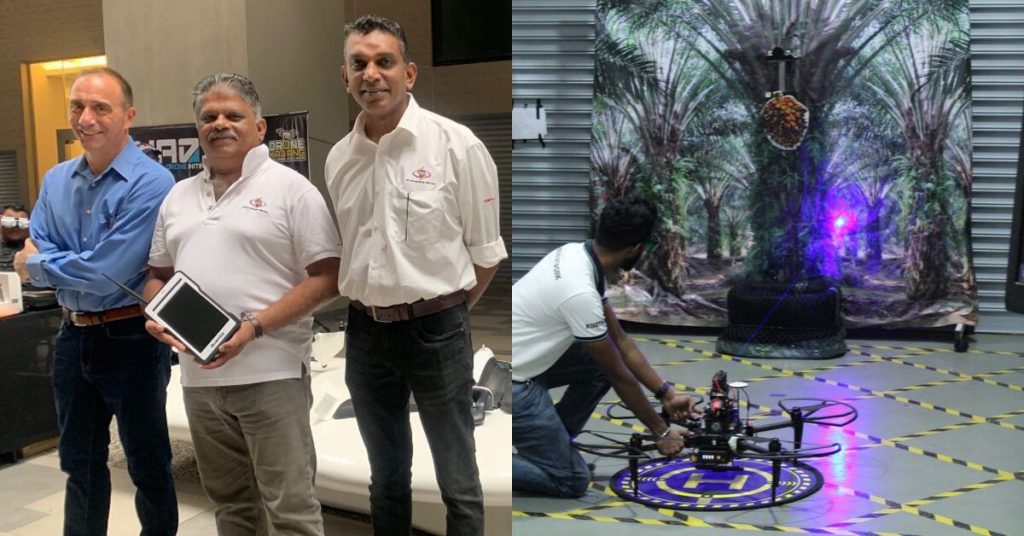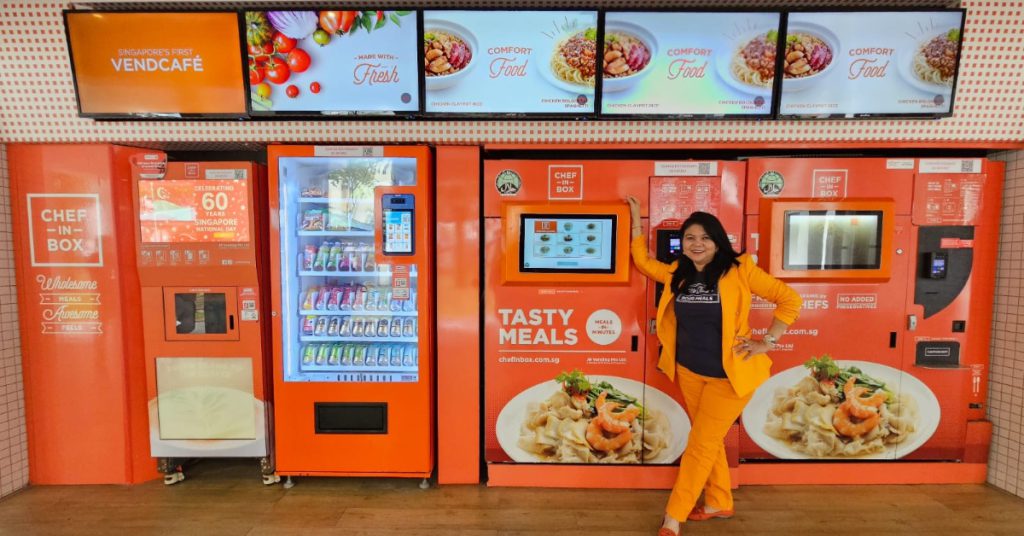Traditional farming is a very labour-intensive job and crops are prone to fall victim to external conditions outside a farmer’s control. As such, it can be frustrating when one puts in massive effort into caring for crops only to yield a bad harvest in the end.
To combat this, a technology consortium called Kambyan Network was established in 2018 to provide autonomous support to agricultural enterprises through its sentient platform called Man Using Intelligent Applications (ManUsIA™).
The company was founded by 5 men, Captain Sudhir AK Kumaren, Ravan Saravanan, Suresh Kumar Chinnan, Captain Anand, and David Cirulli.
They formed Kambyan when they realised that, as individual companies, it was costly to adapt AI, big data, analytics and RPA (Robotic Process Automation) and that no one was offering a one-stop complete solution platform for these.
AI Isn’t Taking Your Jobs, It’s Improving Them
The challenges faced by the agriculture sector in Malaysia are manpower shortages, low yield, lack of logistics, hard-to-predict weather and management malaise which all result in major losses. This is where Kambyan comes in to address these challenges.
“Through our comprehensive solutions, specialised data and drone engineering teams, coupled with highly-skilled flight operators, we help businesses deploy drones and robots in all industry segments,” Sudhir said.

First of all, Kambyan’s technologies benefit plantation owners (big and small) as the sensory devices provide data about the condition of the soil, its nutrient and water levels.
The data is then transmitted to the drones, which in turn carry out required intervention be it the spraying of herbicides or pesticides, or delivery of nutrients at the required amount to save cost.
Secondly, the drones can also provide snapshots and map out the whole plantation area in a short period of time so farmers can get a total profitability map of their farm.
“This map will tell them which part of their farm is the most productive, and which is the least. We will also be able to tell the farmer which crop will be the most suitable for his plot. With the correct selection, now we help the farmer decrease his cost and increase his yield,” Sudhir explained.

Furthermore, the drones and robotics are being used to harvest and transport produce to warehouses in a fraction of time.
According to Sudhir, this helps save farmers from carrying out thousands of dangerous, dull, dirty and difficult man-hours, so enterprises can now redeploy their manpower to do higher-order jobs by reskilling and retraining them.
Finance Entrepreneurship, Not Just Success Stories
RM10 million from internal and angel investors has been invested in Kambyan to develop the technology for its digital agriculture solution.
“Our year-to-year profit is RM3 million and we are envisaging a 30% annual profit. By end of 2019, we need to expend RM30 million which is required to roll out this end-to-end total solutions platform,” Sudhir said. “For a technology roll-out of the scale we are looking at, this is extremely low-cost.”

The RM30 million will be used to enhance their Autonomous Harvesting, Fertilisation, Weeding and Transportation (AutoHaFeWeT™) for the agricultural sector, starting with oil palm plantations. “The Digital Agriculture Systems will also be remodelled to suit the other industry verticals such as logistics and warehousing, manufacturing, etc.” Sudhir said.
However, raising capital is tough and Kambyan will be depending on private or public investors. Sudhir said that Malaysian financial institutions are extremely risk-averse and only want to finance success stories, and are not able to finance entrepreneurship.
We need to change this mindset. Instead of looking at cash as the only arbiter of success, we need to look at the value creation potential. If not, we will forever be users of technology, not the creators. In other words, a technologically-colonised country. The main reason we cannot go into a high-income nation is because capital is not enough or readily available for budding entrepreneurs.
Captain Sudhir AK Kumaren
Training Budding Technopreneurs For IR 4.0
Kambyan’s services come with an annual fee and an operating fee that are nominal. The company only monetises after the harvesting process, which means they monetise when the owners monetise.
“This helps alleviate the burden of cost from the small farmers as now they get better yield from the same plot so they can afford us,” Sudhir said.
As of now, the technology has been tested on oil palm plantations projects and has been deemed successful. “We are in the roll-out stage of moving into full-force production where most of the operational issues are being ironed out. Our client base for systems are more than ten but they are watching our first total roll-out in Sungai Gumut to sign up for other services,” Sudhir told us.

Not only has the integration of advanced technology driven efficiency and profit in the agricultural sector but it’s also attracting youth.
“The youth who previously shunned such manual jobs are attracted to it,” Sudhir said. “It also provides handsome returns for the younger generation as they return to agriculture and reap the benefits of toiling the land albeit in a modern way, thus the jobs in these sectors are now considered ‘sexy’.”
To further welcome youths into the industry, Kambyan Network is actively providing training through their institutions, Adroit College and UAS & Robotics Academy, which offer professional certificate courses in Robotic Process Automation-Field Operations (RPA-FO).
Sudhir believes that the course will make youths a competent professional in 11 months, and graduates of the course will then be absorbed into the Kambyan Network workforce. It’s a guaranteed position, and they’ll have a career pathway to being a technopreneur in 7 years.
It’ll Soon Be A Crowded Field
Drones in the agricultural sector are nothing new, but few startups in Malaysia offer drone services specifically for farming. One other player that’s been addressing agricultural pain points with drone technology services since 2009 is Braintree Technologies Sdn Bhd.
Sudhir has also noticed several copycats in the wake of Kambyan’s establishment and commented that it will soon be a crowded field.
If anything, the potential competition only drives Kambyan to further its developments. Just earlier this year, the company showcased the Airborne Laser Cutter ALC Mark 1, or “AleX”, at the LIMA 19 in Langkawi.

“AleX is revolutionary in concept in that now we are able to have flying tools. In years to come this will be how manufacturing will be done—using flying tools,” Sudhir said.
Harvesting fruits with a laser cutting drone is a milestone for Kambyan, who has a sacrosanct safe operating limit with world-class Anomaly Detection, System Diagnostics and an Operational Safety Management System in place.

Going forward, Sudhir said that Kambyan will continuously develop ManUsIA™ to replace Dirty, Dull, Difficult & Dangerous (4D) manual jobs with autonomous and automated systems operated by highly-trained technopreneurs.
He also added that the company aims to be fully present and operational in Southeast Asia this year before moving into the entirety of Asia by the next year. After that, they’ll aim for Europe and the Americas.
- You can find out more about Kambyan Network here.
Featured Image Credit: David Cirulli, Sudhir AK Kumaren & Ravan Saravanan / Kambyan Network













